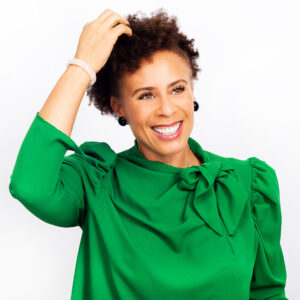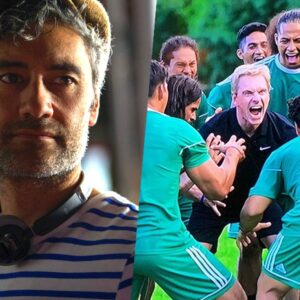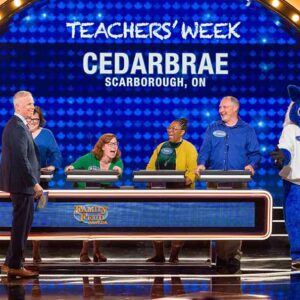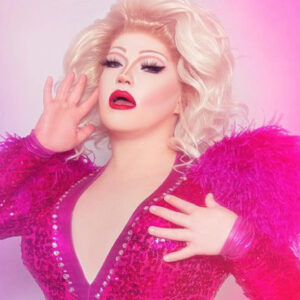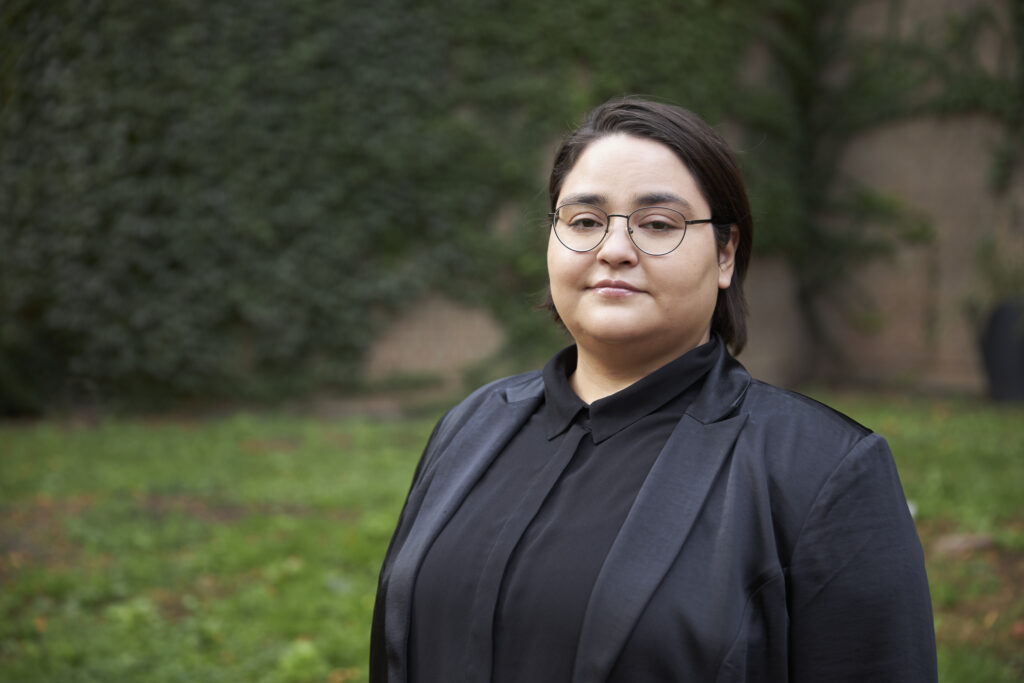
Dr. Jas M. Morgan was selected to be one of several mentors in the 2022 Audible Indigenous Writers’ Circle.
The Audible Indigenous Writers’ Circle is a six-month mentorship and workshop program for emerging First Nations, Inuit and Métis writers in Canada looking to elevate their stories. The 2022 program launched this summer and our writer Jace caught up with Morgan earlier this month to chat about their work, storytelling, and what motivated them to want to mentor new and emerging writers.
Morgan is an award-winning Cree, Saulteaux and Métis writer, artist and professor in the Department of English at Toronto Metropolitan University. Morgan’s writing has appeared in The Walrus, Malahat Review, Room, GUTS, esse, Teen Vogue, CV2/Prairie Fire, The New Inquiry and other publications. Their research about queer and trans Indigenous art, archives and futures has been widely published by academic journals and publishers internationally.
TRT: What excites you about helping someone learn more about who they are as a writer?
Morgan: I think what is exciting about this program is that it is all Indigenous writers. A lot of folks in our communities get pushed out of typical workshop structures or creative writing schools. Not for lack of trying but for financial reasons or life circumstances. They may have kids so it doesn’t fit their life. So for me, this is an exciting opportunity to take the skills that I use, teaching at TMU, and use them to teach a community of Indigenous folks.
TRT: What are your favourite types of storytelling?
Morgan: I am definitely a visual storyteller. I am a producer. I use film as a storytelling medium. I think Indigenous people have a really long history of filmmaking as a means of telling our stories really raw and how we want to tell them. I am also really into creative non-fiction. There is something really exciting happening in creative non-fiction.
TRT: How did you know you were meant to be a producer and storyteller?
Morgan: I have since I was a kid. I have journals filled with writing. And I filmed a film with my friends when I was in Grade 7, I think. I just knew.
TRT: In what ways do the places you call home influence the way you share?
Morgan: There is something about being a Cree, Métis person that I can not explain. You grow up surrounded by story and people telling their stories. I think part of being Metis is always telling your story. It is really hard to explain. We value artists. We value storytellers in a different way than western society does.
TRT: What do you expect from the people you mentor?
Morgan: Some of then them took a bit of time to even get to critiquing their work. Some of them came ready to discuss things like, “How do I pitch a publisher?” “What should I be doing when I want to talk to an agent?” “How do I organize?” Some of them are just at the very beginning stages of their projects. Others have writing they have been working on for years so we have been trading back drafts, and commenting on the drafts. Something that is cool about this structure is that it is one-on-one so you can create the perfect program for each student. I wish all creative writing schools could be like that. So hands-on.
TRT: What ways you do critique your own work that are similar to how you critique your mentees?
Morgan: I think one of the best things I had were Indigenous mentors when I started out writing who would be critical of my writing. Indigenous people are allowed to feel weary of colonial institutions editing their work. But everyone needs to be edited. Everyone needs comment on their work to grow as a writer. The best thing I do is try to teach humility around edits. Learning that everyone needs critique to grow. Some of the best stuff I have written is the best because I worked with an excellent editor or someone I trusted.
TRT: How do you manage your ego in your own writing?
Morgan: That comes back to my ethics because I write so much about life. When I am thinking about my writing being a representation of my community or family, I do not know if there is any other way than to balance your ego a little bit. A really good piece of advice that I got from one of my early mentors was to make sure I approach my writing with the same accountability as I would have to an elder in my community. If you are portraying someone, are you portraying them fairly? Step back from your representation and step back from your ego and keep something for yourself. Drop the ego and be fair to your characters.
TRT: What ways do you create space for your students to stay true to themselves?
Morgan: It can be defeating for sure especially if it is the first time you are receiving criticism. That is why you always have to balance it with care and generosity and good comments about someone’s writing. Especially when it is Native folks. Or women. Or queer folks or trans folks. I think that there is a lot of space that we make up to define outsells as writers. To feel confident taking up these roles. I think it is really important not to see these from a place of competition but from mutual support.
TRT: What is storytelling to you?
Morgan: Storytelling is anything. I take a pretty diverse perspective to this. You could tell stories on your TikTok. You could tell stories through your Twitter. I really want to destabilize this idea of who is a writer and who tells stories. So many of us do. I think we all do.
TRT: What are some areas in your own storytelling you could grow in?
Morgan: My obsession with the truth. Or my characters being good. I think I need the characters in my next book to be bad and I need them to be untrue.
TRT: What are some ways you are a hard mentor?
Morgan: I am going to hold you accountable. And as an Indigenous person speaking to another Indigenous person there’s room to say, “Is this truthful?” “Are you being accountable to this person in your story?” “Are you being accountable to your own people?” Being responsible to the communities you represent. That is where I am kind of a hard-ass.
TRT: What are some ways you are a great mentor?
Morgan: I am kind. I treat my mentees like friends. Humans. Not just my little minions. I think about some of the experiences I had in grad school where my mentors kind of treated me like a lackey. You are just there to get their coffee.
TRT: How do you encourage students to dig deep, speak authentically and head toward sensitive topics?
Morgan: I feel like I do not often struggle with that in Indigenous literature. Writing can be a place where we work out trauma. My mentees did not have a hard time digging deep and sharing their stories.
TRT: What is one thing you hope your mentors learn from you?
Morgan: That they can do it. That they are writers. They should not be intimidated and they are just as qualified as me or any of the peers who are mentoring them.





